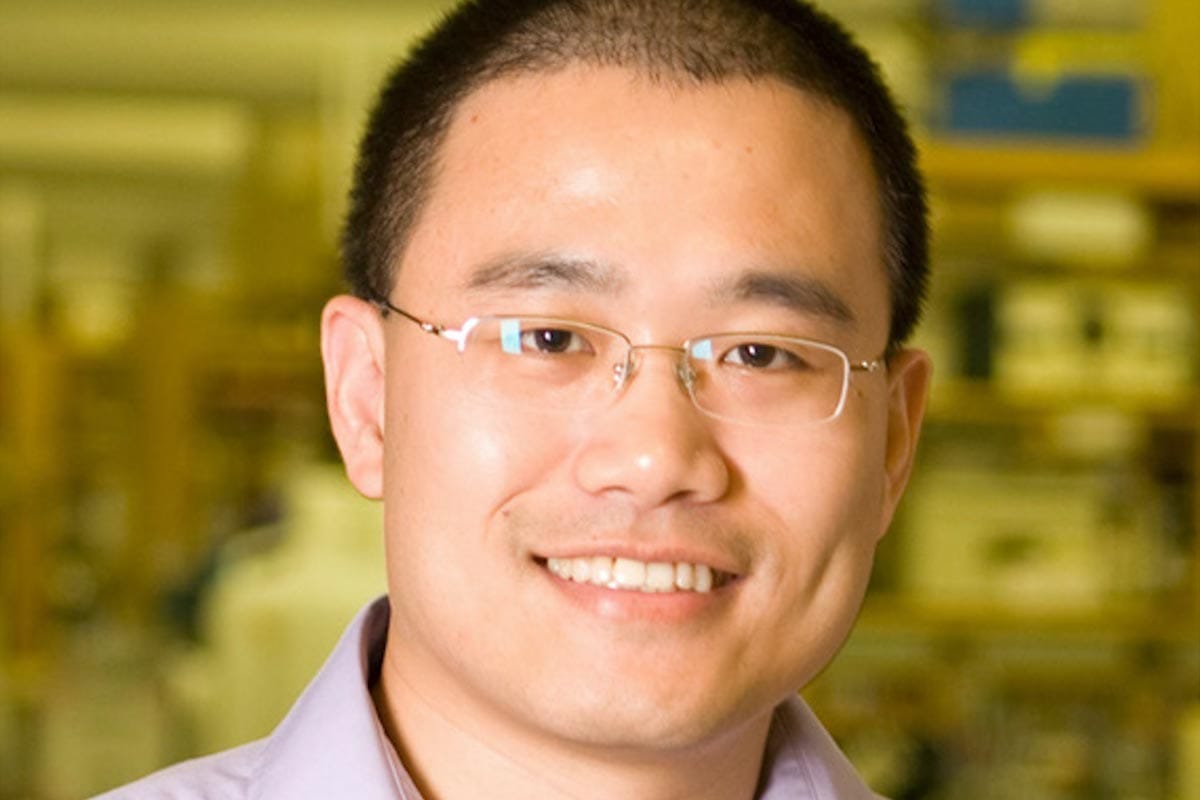Yibin Kang’s father, forced during China’s Cultural Revolution to abandon his career as a marine biologist, passed on his passion for science to his son. Several years later, the genomic revolution gave the new PhD graduate the opportunity “to address the difficult questions in cancer biology.”
Born in 1973 in Fujian Province, Kang’s scientific skills were apparent early. As a high school student, he won the top prizes in the National Chemistry Competition. But chemistry gave way to genetics when, as an undergraduate at Fudan University in Shanghai, Kang recalls first being “fascinated by the potential…power of genetics to tackle human diseases.”
In 1995 Kang enrolled in graduate studies at Michigan State University. He transferred a year later to Duke University, where he worked in the laboratory of renowned virologist Bryan Cullen. As the only graduate student in the group, Kang proved early he could hold his own among his colleagues. As part of his thesis work, Kang solved an important problem in virology relating to the export of viral genomic RNA. His success in studying virus-host interactions inspired him to tackle an even more difficult question: How do tumor cells turn against their hosts and eventually kill the cancer patients?
In the lab of Joan Massagué at the Sloan-Kettering Institute, Kang devised a functional genomic strategy for identifying and analyzing breast cancer metastasis genes, a major breakthrough in the field.
In 2004, he was invited to join the faculty at Princeton. Kang saw it as an “ideal opportunity,” believing he could “make a difference and contribute to the lofty goal of conquering cancer through innovative research and teaching in cancer biology.” The research he has done has provided novel insights into the mysterious process of cancer metastasis; he has identified several key molecules that allow tumor cells to negotiate their way from the primary lesion to distant organs such as bone and lung.
Awards and Accomplishments
- Oudang Distinguished Lectureship Award of the Korean Pharmaceutical Society (2010)
- AIMM-ASBMR John Haddad Young Investigator Award
- American Cancer Society Scholar Award
- Department of Defense Era of Hope Scholar Award
Follow Yibin Kang
Jury Members
2011 Vilcek Prize for Creative Promise in Biomedical Science
Heran Darwin
Laurie Dempsey
Peter Palese
Jan Vilcek
Leslie Vosshall
Nicholas Wade
Jedd Wolchok
Related Prize Recipients
Kivanç Birsoy

Feng Zhang

Titia de Lange

You may also be interested in
Karolin Luger Discovers Importance of Unconventional Methodology

Kivanç Birsoy: “I feel like I contribute—at least—to the understanding of this disease”

Martin Jonikas: “Having a Diversity of Backgrounds Makes Us More Creative and Productive”

